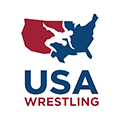Do Recruits Really Need an Online Recruiting Profile?

You’ve probably heard it before: To get recruited, you need to create your online recruiting profile, or your athletic resume. But is it really necessary? If I’m good enough won’t coaches just find me? Wouldn’t it be just as easy to start firing emails out to college coaches? The answer: Creating your recruiting profile or athletic resume isn’t required to get recruited, but it’s one extremely helpful tool that makes it easier for more college coaches to recruit you.
In your online recruiting profile, you have the opportunity to promote yourself as a student-athlete, share your accomplishments and show coaches why they should recruit you—all in one convenient, easy-to-get-to place. And in the increasingly digital world of recruiting, coaches are looking for recruits online. If you don’t have an online presence through your recruiting profile, you’re cutting yourself off from a huge channel today’s coaches use to discover and evaluate recruits.
To help you better understand why recruiting profiles are so important, we’ve broken down each of the main components of your online profile. You can also watch our video below to learn more about NCSA’s free, online recruiting profile available to student-athletes.
Highlight or skills video: The first thing coaches want to see when evaluating a student-athlete
Your highlight or skills video gives coaches a good firsthand look at your athletic abilities. Because many coaches don’t have the time or the funding to travel around the country watching recruits compete, they rely heavily on video to evaluate recruits’ athleticism. In fact, most coaches won’t start recruiting an athlete until after they’ve seen their video. This is their first stop when they are looking at an online profile, so it’s imperative that you add your video as soon as possible.
Insider tip: You can host your video on a platform like Hudl, YouTube or Vimeo and add that link to your online recruiting profile. That way, you give coaches even more opportunities to watch your film. Videos are not just one and done. If your skills and size improve, you will want to add new video to your profile.
Strong, sport-specific key stats: Show off your top skillsets
For individual sports like swimming, track and cross country, coaches need to see your season bests and season averages. Don’t worry about sending them your complete list of meets or tournaments. If you’re in a team sport, coaches don’t need to see how well your team placed in a tournament. Keep the focus on you! Where applicable, include verified stats relevant to your sport. For example, football players can include 40-yard dash time, shuttle run, 3-cone drill, vertical jump, broad jump, bench press weight and squat weight.
Your list of upcoming events: Give coaches the opportunity to watch you compete in person
After reviewing your highlight or skills video and your stats, the next step for a college coach is to find a time to watch you compete in person. In your online recruiting profile, you can list your upcoming camps, tournaments and showcases. This is an easy way for coaches to see if your schedules match up.
Transcript, GPA and test scores: College coaches want to make sure you’ll be academically eligible
Academic eligibility is huge—most coaches simply can’t afford to waste their time recruiting an athlete who isn’t going to be academically eligible to compete in college. Your transcript helps D1 and D2 coaches make sure that you’re on track to complete all your necessary core courses. Your GPA and test scores are quick reference points for coaches to make sure you meet the minimum entrance requirements for their school.
Your coach references: Include contact information for all current coaches
College coaches rely on high school and club coach recommendations to get a good feel for a recruit’s character, how coachable they are, how well they get along with their teammates, what skills they should work on and much more. Having your club, high school and any other coach—i.e., a position coach or conditioning coach—listed makes it easier for college coaches to get the reference they need.
Your contact information: Coaches need to be able to get in touch with you
This one is pretty self-explanatory. If a college coach is interested in recruiting you, they need your email, phone number and they probably want your social media handles, too. Just remember to make sure you clean up your social media accounts, so coaches won’t find any inappropriate content.
















